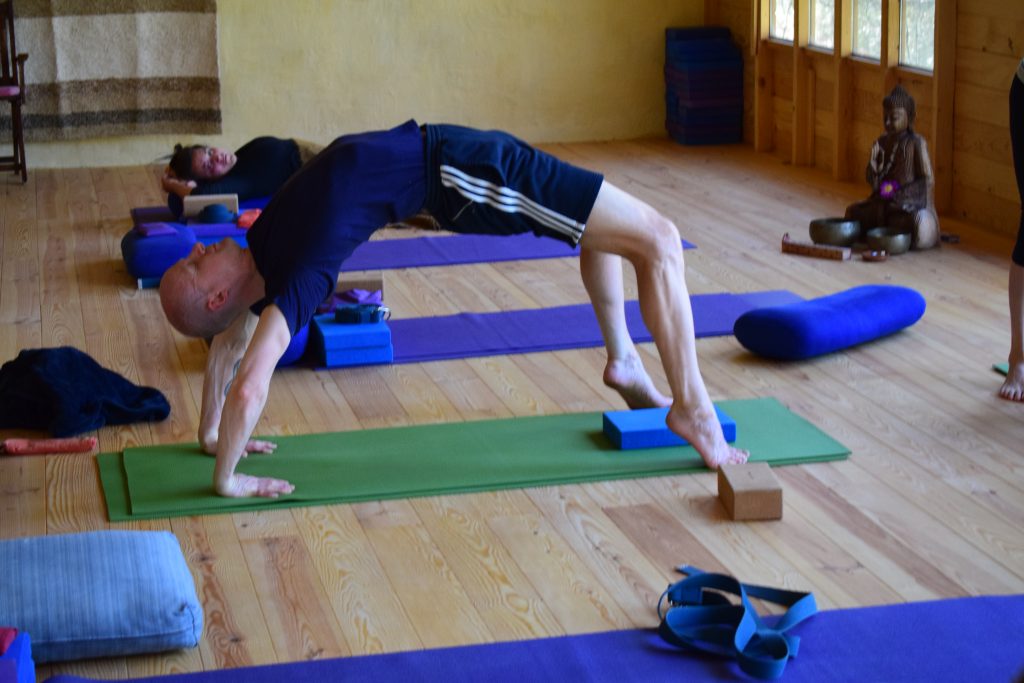|
In Episode 51 of A Medicinal Mind: Wisdom and Well Being, I jump back into the world of quantified self and self improvement with our good friend, Benjamin Richardson. Ben has been featured on the show, not only once, but twice before in Episodes 31 and 35 and has brought a wealth of knowledge as a self proclaimed, practical citizen scientist, seeking to use emerging technologies and our understanding of the human body to improve his health, and through that exploration, make it easier for others to do the same.
In this episode we get our feet wet with a methodical discussion of quantified self, as Ben offers his 5-step approach to identifying and addressing self challenges. From this framework, Ben delves more deeply into each of the essential steps, from choosing a quantifiable goal, to selecting an intervention and measurement technique to actually assessing your progress and adapting based on your results, Ben gives us incredible insights into the practical things one must consider when attempting to make or quantify positive change. From here we begin our dive into Ben’s real life application of this framework as part of his attempt to improve his movement patterns and variety with a concept known as “exercise snacking.”
We end the show with an in depth discussion of functional blood chemistry, and a second personal experiment and exploration that occurred as a result of Ben’s first intervention. Applying our previously identified quantified self framework, Ben takes us through an exploration of his approach to address and further understand the roots behind low testosterone. Starting from a set of plausible hypothesis, Ben outlines a second multifaceted intervention to address this new identified concern and describes how he partnered with a holistic practitioner to obtain complementary testing to support and guide his personal self experiment.
This was as always, an absolute blast, and whether you are a citizen scientist, or clinician, you will gain some tremendous insights into cost effective and simply more effective ways to guide and support positive behavior change. While this may have been my third conversation with Ben, I found myself throughout the podcast continuing to uncover pieces of Ben’s story and passion I had yet to fully see. Driven by the details, but fulfilled by the bigger picture, Ben’s willingness to experiment, to explore and to let others in on his vulnerable journey is rather remarkable, and in truth, beyond rational explanation. While most seek to showcase a filtered version of their perfected lives, Ben has never been afraid to offer his authentic self, genuinely encouraging people through purposeful intent to see how they too can find more fulfillment, better health, and above all, greater meaning in their lives.
1 Comment
In this week’s episode Dr. Abbott walks us through a clinical case, outlining his therapeutic approach, offering along the way insights into the best ways to expand your integrative medicine education as well as improve your skills as a clinicians. Not to be left out, Dr. Abbott also offers his tips for patients on how to best partner with a holistic health clinician to effectively improve your health without breaking your budget or morale!
Please check out the links below to a text version of the case study as well as more resources to expand your functional medicine education! Link to the Case Study: https://www.amedicinalmind.com/blog-spiritual-spaces-and-flourishing-faces/feature-a-case-study-in-functional-medicine-with-dr-michael-ruscio Link to Dr. Ruscio’s Future of Functional Medicine Review: https://drruscio.com/login/ Explore more functional and integrative medicine resources from our E-Book https://www.amedicinalmind.com/health-e-book.html |
PodcastExplore our conversations, delving into the depths of the authentic human experience. Archives
October 2019
Categories |




 RSS Feed
RSS Feed